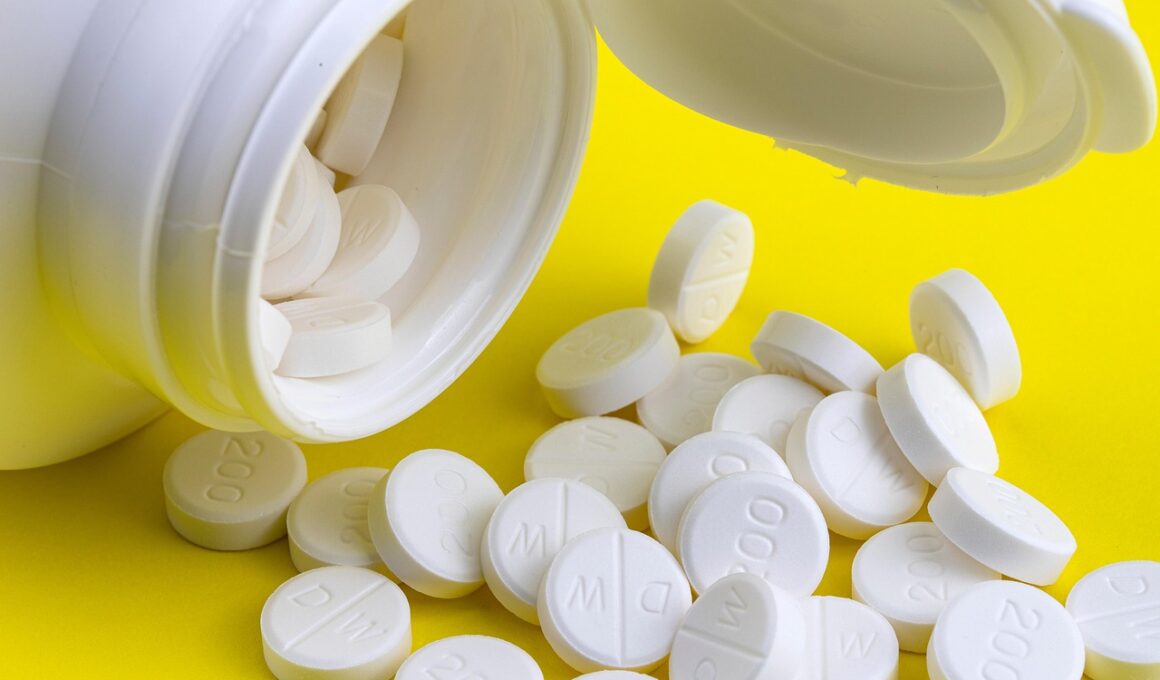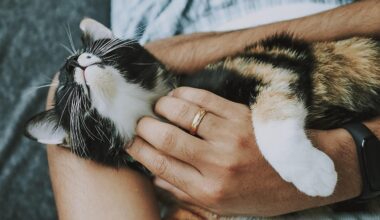Common Nutritional Deficiencies in Cats and How Supplements Help
Cats, like all animals, require a diverse range of nutrients to maintain their health and vitality. Unfortunately, many commercial cat foods fail to provide complete nutrition, leading to deficiencies. Common nutritional deficiencies found in cats include taurine, omega-3 fatty acids, and certain vitamins like B and E. Taurine is essential for heart function, vision, and reproduction. A lack of taurine can lead to serious health issues. Omega-3 fatty acids are crucial for maintaining healthy skin and a shiny coat. Cats often lack these nutrients because they do not consume enough fish or high-quality sources regularly. Vitamins B and E are necessary for energy metabolism and immune function, respectively, and deficiencies can compromise a cat’s overall well-being. To combat these deficiencies, cat owners might consider adding specific supplements to their pet’s diet. Always consult with a veterinarian before introducing supplements, as improper use may cause adverse effects. The right supplements can restore balance and enhance your cat’s health, making them feel more energetic and vibrant. This holistic approach ensures your cat’s dietary needs are met effectively.
Understanding the specific nutritional needs of cats is crucial for preventing deficiencies. Cats are obligate carnivores, meaning they require a diet primarily consisting of meat. This diet provides essential nutrients that are difficult to obtain from plant sources. Due to this dietary requirement, some cats may struggle with deficiencies if they do not receive adequate animal-based protein. Common symptoms of nutritional deficiencies in cats include lethargy, poor coat condition, and frequent infections. Moreover, cats may develop behavioral changes due to deficiencies in specific nutrients. For instance, a taurine deficiency can lead to behavioral issues, as it is vital for neurological function. In this context, nutritional supplements become essential tools for cat owners. They can introduce vitamins, minerals, and fatty acids that might be lacking in a cat’s regular diet. It’s important to choose high-quality, specifically formulated supplements designed for feline health. Using supplements can help improve various aspects of your cat’s health, including energy levels, coat shine, dental health, and digestive efficiency.
The Importance of Taurine in Cat Nutrition
Taurine is an essential amino acid that plays a critical role in the health of cats. Unlike dogs, cats cannot synthesize sufficient taurine, making it vital to obtain it from their diets. A deficiency in taurine can cause serious health issues, including heart disease, retinal degeneration, and reproductive problems. Symptoms of taurine deficiency can often be subtle at first, making early detection challenging for pet owners. Cats lacking taurine may exhibit diminished appetite, lethargy, and an unkempt coat. Their overall health can deteriorate quickly, resulting in severe conditions that could have been easily prevented with proper nutritional support. Regularly providing taurine-rich foods or supplements ensures that your cat receives optimal amounts of this critical nutrient. Foods high in taurine include meat, fish, and poultry, making it essential for cat owners to select high-quality, protein-rich diets. It’s also important to recognize the signs of taurine deficiency so you can take corrective action if necessary. By ensuring adequate taurine intake, you’re contributing significantly to your cat’s health, longevity, and overall quality of life.
Another commonly overlooked aspect of feline nutrition is the balance of omega-3 and omega-6 fatty acids. These essential fatty acids play significant roles in maintaining healthy skin, coat, and overall bodily function. Cats typically have a natural balance of these fatty acids when consuming a diet based on whole prey. However, commercial cat foods may not provide sufficient levels of omega-3s, particularly from high-quality sources like fish oil. Omega-3 fatty acids are known to possess anti-inflammatory properties and are beneficial for joint health, skin health, and even cognitive function in older cats. By supplementing your cat’s diet with omega-3 rich oils or specific supplements, you can help promote healthy skin and a lustrous coat. It’s easy to identify cats lacking these essential fatty acids; they may scratch frequently, have dry skin, or exhibit changes in their grooming behavior. Moreover, offering appropriate omega-3 supplements can improve your cat’s overall health, including cardiovascular and cognitive functions. Regular supplementation promises to enhance your cat’s quality of life significantly.
Vitamins Necessary for Cat Health
Vitamins are essential micronutrients that play significant roles in various bodily functions for cats. Vitamins like B complex and vitamin E are particularly important for maintaining energy metabolism and immune function. Deficiencies in these vitamins can lead to serious health issues. For example, vitamin B deficiency can result in lethargy and weight loss, while insufficient vitamin E can compromise immune responses, leaving the cat more susceptible to infections. Cats typically receive these vitamins from a meat-based diet, but certain conditions may lead to deficiencies, such as poor diet quality and certain health problems. Incorporating vitamin-rich supplements into your cat’s diet can help alleviate these deficiencies and support their overall well-being. However, moderation is critical since excessive vitamin intake may be harmful. Always consult with your veterinarian before adding supplements, ensuring they are appropriate for your cat’s individual needs. Regular monitoring and appropriate supplementation can significantly improve your cat’s vitality and immunity. Ensuring that your feline companion gets the right vitamins is a step towards ensuring a longer, healthier life.
Besides supplements, a holistic approach to nutrition includes understanding the significance of hydration in a cat’s diet. Many pet owners overlook the importance of water intake, believing that dry food suffices for hydration. However, cats are notoriously poor drinkers and often require additional moisture. Increased water consumption aids in digestion, helps maintain kidney function, and prevents urinary tract issues. One effective strategy is to incorporate wet cat food into their diet, as it contains higher moisture levels than dry kibble. Providing fresh, clean water daily is also crucial. Some cats prefer running water from fountains, which can encourage them to drink more. Additionally, certain supplements can help maintain hydration levels if added to their food. These supplements often contain electrolytes that help balance fluids in the body. Encouraging proper hydration not only supports their overall health but can also enhance the effectiveness of any supplements introduced into their diet. Focusing on hydration complements a well-rounded nutritional plan and contributes significantly to your cat’s quality of life and health.
Choosing the Right Supplements for Your Cat
The market for cat supplements is vast and can be overwhelming for pet owners. To make informed choices, it is critical to understand what specific needs your cat may have. Consult your veterinarian to identify which nutrients are deficient, based on their diet, age, and health status. High-quality supplements from reputable manufacturers are essential in ensuring your cat gets adequate nutrition. Look for supplements that specifically mention veterinary testing or clinical efficacy. Some supplements may come in chewable forms, powders, or liquids, so choose something that your cat will accept readily. Additionally, consider combining supplements with a balanced diet to ensure comprehensive nutrition. For instance, cats with dental issues may need powder-based supplements that can be sprinkled easily on food. Proper dosage is crucial; always adhere to product recommendations and veterinarian guidance. Regularly revisiting your cat’s nutritional needs as they age or experience health changes is vital to achieving optimal health outcomes. Adequate supplementation can significantly enhance your cat’s quality of life, longevity, and overall wellness.
In conclusion, a holistic approach to cat nutrition requires attention to common deficiencies and the use of appropriate supplements. Understanding the essential nutrients that cats need, such as taurine, omega-3 fatty acids, vitamins B and E, is vital for maintaining their health. Regular monitoring of your cat’s diet and health status will allow for timely interventions when deficiencies arise. By introducing high-quality supplements in consultation with a veterinarian, cat owners can effectively address these deficiencies and enhance their pet’s quality of life. Remember that nutrition plays a crucial role in the longevity and vitality of your feline companions. Therefore, before making significant dietary changes or introducing supplements, it’s essential to ensure you’re well-informed and prepared. Supplements, when used suitably, can significantly contribute to your cat’s overall health and joy in life. A commitment to consistent nutrition and health maintenance will foster stronger bonds between you and your beloved pet. By prioritizing your cat’s nutritional needs through education and support, you can ensure they lead healthy, happy lives.


